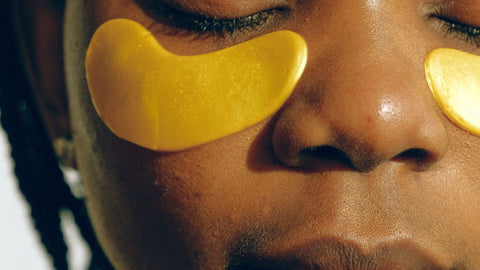As a menstrual health company providing relief from period symptoms, we often find ourselves faced with an interesting challenge: most people don’t have a strong understanding of what “menstrual health” really means. This can be true both for people who don’t menstruate, as well as people who do.
Menstrual health is often confused with menstrual hygiene, and pads and tampons tend to come to mind when people hear either term. While menstrual hygiene is extremely important, so is menstrual health, and it gets left out of the conversation in the mix-up.
The confusion is understandable considering most of us learned plenty about pads and tampons in sex ed, but nothing about how to prevent menstrual symptoms with healthy habits. Many people come out of sex ed believing periods are “supposed to” hurt, which paints a foggy picture of what proper menstrual health even looks like.
To help you get better acquainted with the term, we provide our definition of menstrual health below, with some examples of what good menstrual health can mean for you.
What is menstrual health?
Menstrual Health [men-struhl helth]noun.
1. The general state of well-being related to the absence of physical, mental, and emotional symptoms stemming from the menstrual cycle.
The degree to which we manage our menstrual health can strongly affect our relationships, self-esteem, opportunity, social wellbeing, dignity, and overall quality of life.
Menstrual health is impacted by a person’s degree of body literacy, community support, exposure to stress, and access to proper care (e.g. food and nutrition, supplements, and hygiene products). It is also influenced by a person’s relationship with their period and how they psychologically approach it.
Like heart health or digestive health, menstrual heath must be addressed from the inside out, with solutions that nourish the body and support overall reproductive and hormonal health.

What can good menstrual health look like?
Characteristics of optimal menstrual health may include:- A period that arrives regularly, about once every 21 to 35 days.
- An understanding that, while menstrual symptoms are common, they are manageable with proper care and do not need to be “suffered through” or “put up with”.
- A bodily awareness of the unique combination of menstrual symptoms that are typical for you, which can include painful cramping, nausea, bloating, fatigue, mood swings, irritability, cravings, and other symptoms.
- Knowledge of and access to the proper menstrual health tools (e.g. healthy food, supplements, and stress management strategies) that support long-term cycle health.
- Knowledge of when to seek medical attention for abnormal symptoms that may point to an underlying condition, such as endometriosis, PMDD, fibroids, nutrient deficiency, chronic stress, or another condition.
- A habit of cycle tracking, and knowledge of which symptoms are typical for you at certain times throughout the month.
- An awareness of special strengths and weaknesses you may experience during each menstrual phase, and an ability to harness them in tune with your cycle (e.g. creative projects during ovulation, rest during menstruation).
- A belief that your period is a normal, natural, and vital sign of your overall health.
- The ability to talk openly to friends, family, coworkers, and healthcare practitioners about your period whenever you need support.
- Freedom from shame, dread, or embarrassment associated with your period.
- Agency over how you spend your period days, and an ability to fully participate in school, work, or social activities while you’re menstruating if you choose to.
How to improve your menstrual health
Effective strategies to improve menstrual health can include education, menstrual health supplements, period tracking, nutritional counseling, mental health support, stress management, medical assistance, or any combination of the above.
At De Lune, menstrual health is supported and celebrated, and your symptoms never hold you back! We serve those suffering from physical and emotional period symptoms with menstrual health supplements that target cramps and PMS.
Adding Cramp Aid and Steady Mood to your ritual are just two effective and easy ways to improve your menstrual health. Check out our ebook, The Period Hacker’s Handbook: 4 Holistic Hacks for a More Manageable Period, for more research-backed strategies to optimize your cycle.








